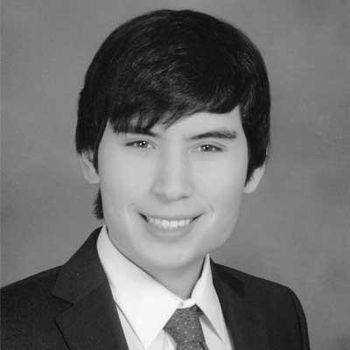Ithaca College prof.: agriculture is 'capitalist, racialized patriarchy'
Zillah Eisenstein, a professor politics at Ithaca College, declared in a lecture last Friday that agriculture is "capitalist, racialized patriarchy."
The lecture was titled "Thinking about Hetero-Racist Misogyny in 'Agriculture'" and took place at nearby Cornell University as part of a seminar series on gender issues in the practice of agriculture.
Though an author of 12 books with titles such as Capitalist Patriarchy and the Case for Socialist Feminism and her memoir Manmade Breast Cancers, Eisenstein has never worked in or studied agriculture. The professor explained that she was speaking as part of a seminar series on women in agriculture by stating, “[m]y point here is you’re thinking agriculture and I’m thinking capitalist racialized patriarchy.”
Eisenstein also declared that if war and climate change are extinguished, then there will be "room for revolutionary agriculture.”
Most of her lecture was devoted to the concept of intersectionality, or the idea that different forms of discrimination and oppression are interrelated and cannot be understood independently of each other. Eisenstein mostly digressed to philosophical ruminations about capitalism, racism, sexism, imperialism, neo-liberal democracy, and Marxism.
Eisenstein said after being invited to give the lecture, she began thinking about the topic of agriculture by first asking what is intellectually and politically “invisible” in agriculture, and then positing the question of what happens to the “notion of gender” in different agricultural sectors.
“The idea here is gender… can’t and doesn’t stay static, and yet of course it does,” Eisenstein said. “[T]he whole notion of the sexual division of labor that is both implied in the concept of agriculture and also stands outside it.” A significant portion of Eisenstein’s lecture contained such contradictions in terms, which the professor suggested would aid one in analyzing agriculture.
“The notion again [is] of a society, of a world system, of a global economy that talks about what is produced, and talks so much less about what is silently reproduced,” she said.
From there, Eisenstein began to speak more about capitalism and her own political theories, lamenting in particular about how "politics is defined by your position on capitalism [and] never about bodies," and about the United States’ “fascist democracy.” She turned her critique towards the patriarchy, which she said makes race, gender, and sex invisible to those who regularly practice and study agriculture. Eisenstein said this is the case because the patriarchy is "the flipping of reality [and the] silencing and making invisible particularly women of color."
Eisenstein challenged the audience to "invert the false universality" of topics such as agriculture and capitalism, and instead focus on more specific ideas, like those intersecting race, gender, and sex. She expressed her dissatisfaction with the Pope on this front for his focus on economic inequality, which she says has the effect of ignoring gender and racial inequalities.
According to Eisenstein, because women are on average poorer than men, the real problem society faces is not the "universal" economic inequality but the "specific" gender inequality. Later, the professor suggested that rather than thinking in universal terms, as man has for most of its modern intellectual history, it would be better to think in "polyversal" terms.
Toward the end of the lecture, after expounding on the differences between "same" and "similar," Eisenstein summarily declared: "Equality that is the same—I don't want it."
During the ensuing Q&A session, Eisenstein fielded several questions about her views on class struggle, the parallels between the patriarchy’s dominance of the female body and of agriculture, and about encouraging more people of color to study agriculture and food science. In response to some of these questions, Eisenstein delved into even further-removed digressions, such as comparing Guantanamo Bay to Nazi concentration camps. The professor also took shots at the Republican Party throughout her speech, saying towards the end that she prefers working with progressive people of color and “really wouldn’t care to have [Dr. Ben] Carson on my team”.
Eisenstein’s lecture was part of a seminar series sponsored by AWARE (Advancing Women in Agriculture through Research and Education), which is an initiative of Cornell's College of Agriculture and Life Sciences.
Follow the author of this article on Twitter: @CaseyBreznick

